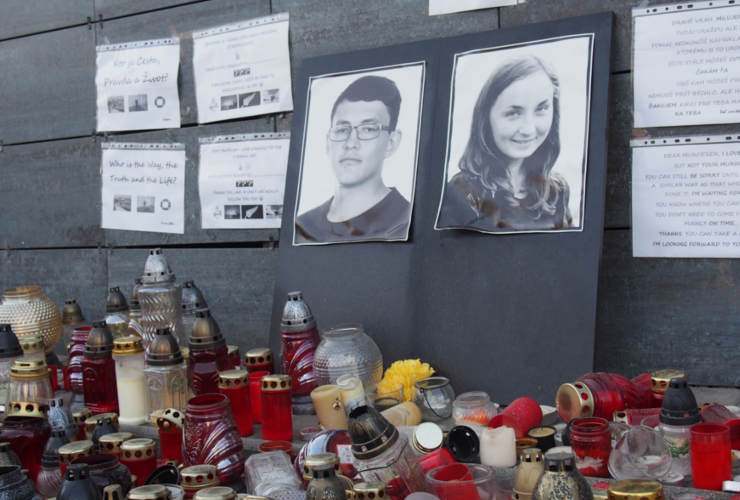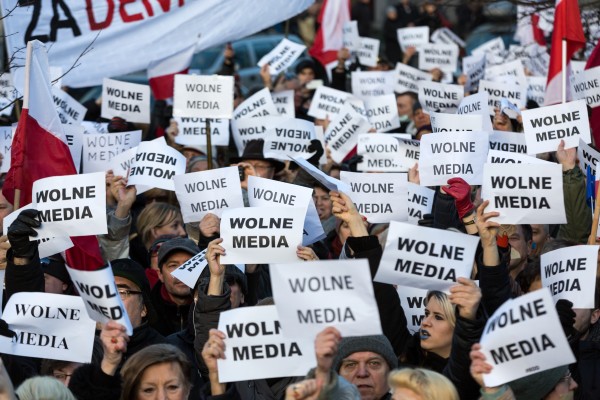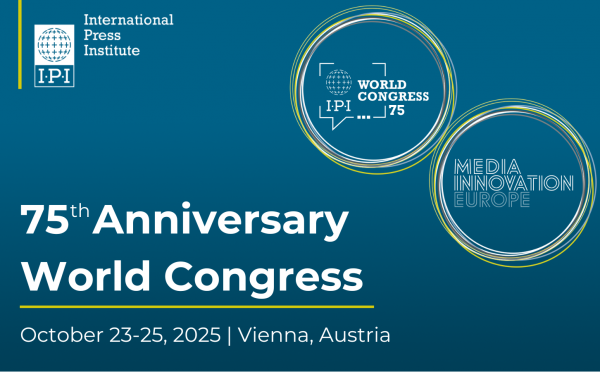This address was delivered on the occasion of the 2018 Alfred Fried Photography Award ceremony on September 20, 2018.
In a small ethnic Hungarian village in the late seventies my grand auntie used to tell us local folk tales about people who carried some heavy curse, witnessed great dramas or had lost their sanity. Sometimes, when the night advanced and she got tired, she said: I shall tell you no more because revealing some secrets might kill the storyteller. I remember the fear and excitement when thinking that the power of a story might cost lives.
After our brilliant but endlessly modest colleague, investigative reporter Ján Kuciak, was assassinated mafia-style, only fear remained. The death of the storyteller was suddenly so close to our bones. It was February 2018 and it was not a war zone. It was Slovakia.
We journalists, photographers, documentary makers, press freedom advocates, are far more than just storytellers. Our stories are not here to entertain. They are here to tell truth from lies, fact from fiction, right from wrong, democracy from autocracy, human kindness from inhuman treatment, public service from populism, rule of law from mafia rule.
We speak out in times when people in power cynically erase the dividing line between these categories; in times when populists would sacrifice democratic values on the altar of their ambitions of personal power.
We are here to make people aware that democracy and peace are not life-long guarantees. To remind them that the threat to these values often comes from within our countries, not from a foreign force or a foreign army. Freedom of the press, the freedom of expression and speech are too often first victims of autocratic power grabs. And so are journalists.
It is crucial that we recognize the work of people who remind us about the essence of democracy and peace and that these values cannot bear distortions and local modifications to serve autocrats, oligarchs, corrupt leaders and populists.
The Alfred Fried Photography Award gains even more importance now when politicians often label people who remind us about these values as enemies of the nation. Erdoğan, Trump, Putin, Orbán and politicians with a similar DNA call critical journalists, artists, academics, and other people who urge societies to uphold these values, traitors, mercenaries of foreign powers, disintegrators of national identities. They call their work fake. The former prime minister of Slovakia, Robert Fico, called journalists anti-Slovak prostitutes and slimy snakes.
This trend, however, is much more than just the loss of political decency. The aggressive rhetoric of politicians in fact gives license to the general public to hate and potentially attack journalists. Yet, in many countries, journalists are the last frontiers defending democracy. And they often risk their lives.
The Alfred Fried Award is a dignified forum to remember journalists who lost their lives because of their work and its impact. We honour journalists who died to tell stories that empower us with information so that we can make better decisions. That help us control those powerful persons who sometimes forget that they are servants of the public and not its master.
Over the past year, at least 90 journalists have been killed, according to the IPI Death Watch. The deadliest country was Afghanistan, where 14 journalists were targeted and killed mostly due to their work, followed by Mexico with 13 journalists killed, making it once again one of the worst countries to be a journalist. Syria and India are followed by the United States with as many as 7 journalists killed in the past year. This depressing list now includes two European Union countries: Daphne Caruana Galizia from Malta and Ján Kuciak from Slovakia. It is not only war zones and countries with drug wars that can be fatal for journalists.
The murders of 31 journalists are still under investigation, some with unclear prospects for results. One of them is the killing Kuciak in Slovakia.
Any society where journalists are murdered arrives at a crossroad, where it is up to the citizens to decide what country they want to live in: whether they understand that with each single attack their ability to control those powerful is being targeted and potentially weakened. When journalists are killed, a voice which speaks and inquires on their behalf is being silenced. And it is also their voice.
I would like to thank the organizers of this great event for partnering with IPI and giving me an opportunity to share my thoughts about issues that lay close to my heart.
Lois and Silvia Lammerhuber, who have successfully turned the Alfred Fried Peace Photography Award in an important event celebrating the power of photography and journalism.
My gratitude also goes to president of the Austrian Parliament, Mr. Wolfgang Sobotka, for hosting us today.
Beata Balogová is the editor-in-chief of the leading Slovak daily SME and a member of the International Press Institute’s Executive Board.



